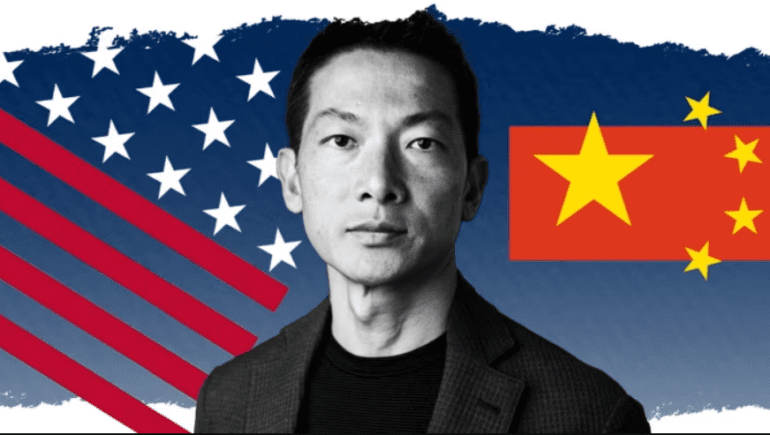TL;DR:
- UAE’s G42, a leading AI company, is cutting ties with Chinese hardware suppliers in favor of its US counterparts.
- This move aims to ensure access to US-made chips and address concerns among American partners, including Microsoft and OpenAI.
- G42 is phasing out hardware from Huawei to comply with Washington’s rules on advanced chip exports.
- The decision highlights the growing competition between China and the US in AI, with Gulf countries becoming battlegrounds.
- G42’s diverse partnerships and controversies, such as its alleged involvement in the ToTok chat app, add complexity to the situation.
Main AI News:
In the evolving landscape of artificial intelligence (AI), the United Arab Emirates (UAE) is at the center of a burgeoning geopolitical struggle. G42, a prominent AI company based in the Gulf region, has recently announced its decision to sever ties with Chinese hardware suppliers, opting instead for American counterparts. This strategic move aims to secure access to US-made chips and alleviate concerns raised by its American partners, including industry giants like Microsoft and OpenAI. Chief executive Peng Xiao stated, “For better or worse, as a commercial company, we are in a position where we have to make a choice. We cannot work with both sides. We can’t.”
G42, with its diverse portfolio that includes the introduction of a groundbreaking Arabic large language model, has attracted investments from Mubadala, the Abu Dhabi sovereign wealth fund, and the US private equity group Silver Lake. However, recent reports have shed light on G42’s deep ties with China, leading to apprehensions among US officials regarding its relationships with entities like telecom giant Huawei. There are concerns that G42 could potentially facilitate the transfer of US AI technology and American citizens’ genetic data to the Chinese government and corporations.
To address these concerns, G42 has decided to phase out hardware from Huawei, a key provider of servers and data center networking gear. This strategic shift is aimed at appeasing its US corporate partners and ensuring compliance with Washington’s regulations on advanced chip exports. “The impression we are getting from the US government and US partners is we need to be very cautious,” Xiao explained. “In order for us to further our cherished relationship with our US partners, we simply cannot do much more with our previous Chinese partners.” G42, however, declined to comment on recent reports about its links to Chinese groups.
G42 has been at the forefront of technological advancements and has made an overwhelmingly positive contribution to the field of AI governance, ethics, and regulation. Nonetheless, Xiao emphasized that G42 has never had “deep AI research relationships” with Chinese partners due to their limited leadership in this domain.
This strategic decision by G42 reflects how Gulf countries with ambitious AI agendas have become battlegrounds in the ongoing competition between China and the United States in the rapidly advancing field of artificial intelligence. In recent months, G42 has strengthened its partnerships with industry giants like Microsoft and OpenAI, with plans to provide sovereign cloud offerings and collaborate on advanced AI capabilities. Microsoft and OpenAI declined to comment on the matter.
G42 and its chairman, UAE national security adviser Sheikh Tahnoon bin Zayed al-Nahyan, play a crucial role in the UAE’s efforts to diversify its geopolitical partnerships and secure access to cutting-edge technologies. However, G42 has faced controversies, including its alleged involvement in the development of ToTok, a UAE chat app used for alleged government surveillance.
The UAE positions itself as a pivotal player in a multipolar world, where China, India, and Russia have emerged as counterpoints to the West’s historic economic dominance. Still, the global scramble for AI chips, particularly those from US chipmaker Nvidia, has limited the UAE’s ability to pivot away from Washington’s orbit. While the UAE initially chose Huawei for its national 5G infrastructure, subsequent deals with Sweden’s Ericsson reflect a policy of diversifying telecommunications partners.
The growing tensions surrounding G42 underscore the challenges companies face when navigating the complex landscape of AI partnerships between the US and China. Nikki Sun, an academy associate in the digital society initiative at the Chatham House think-tank, noted, “It’s unsurprising that G42, as an AI-focused start-up, engages with China, given China’s extensive role in the global AI value chain, from hardware, talent, to end market.” Severing these connections entirely appears unlikely.
G42 asserts that its “extensive network” of international relationships mirrors those of any other global technology company, including its US counterparts. The company’s collaborations with Sinopharm, the pharmaceutical company, and BGI, the genomics research group, have been instrumental, especially during the Covid-19 pandemic. The UAE’s reliance on China for advanced technologies is partly attributed to the US’s reluctance to supply high-tech military equipment, allowing China to fill this void and expand its presence in the regional arms market.
Conclusion:
G42’s strategic shift away from Chinese hardware in favor of US suppliers underscores the intense geopolitical competition in the AI sector, with the UAE and Gulf countries caught in the crossfire. This move reflects the challenges companies face when navigating partnerships between the US and China in the AI field, and it highlights the importance of maintaining international relationships in a rapidly evolving landscape. Companies operating in this space should carefully consider their strategic alliances and adapt to the changing dynamics of AI geopolitics.

